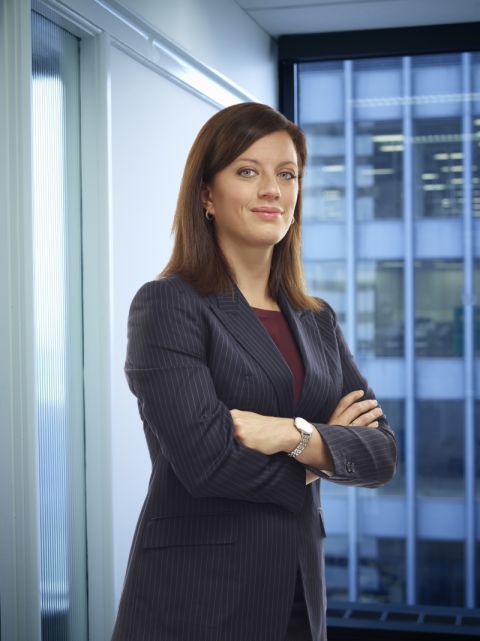
Long-time activist Pam Hrick, Law’13, this year’s Dan Soberman Award recipient, heads LEAF’s mission to advocate for gender equality under Canadian law
Pam Hrick has worked all her adult life to advance feminist issues in the legal realm. She co-founded the Queen’s Feminist Law Students’ Association, sought out mentorship from feminist law professors, and wrote her LLM thesis at New York University on legal responses to technology-facilitated violence against women.
That’s why her career move, joining the Women’s Legal Education and Action Fund (LEAF) as Executive Director and General Counsel in February 2021, was a natural progression, in an organization where Hrick already felt at home.
“I love the brilliant staff that I work with,” she says. “We have a wonderful team of women, trans, and non-binary people who are all personally very committed to advancing gender equality and doing it from an intersectional feminist perspective.”
She began her journey into law as legislative advisor to the Attorney General of Ontario after completing her BA in political science. Hrick says the experience both confirmed her interest and provided real-world preparation. “That broader understanding of how the law functions and how it impacts society was invaluable.” When she arrived at Queen’s, she says she appreciated the opportunities to work closely with faculty such as Don Stuart and Beverley Baines on directed research projects and research assistantships. She also loved mooting, participating in both the Laskin and Gale competitions and volunteering with Outlaw, the law school’s 2SLGBTQQIA student group.
Since graduation, Hrick “came home” to coach the Queen’s Laskin Moot team for several years, alongside Professor Cherie Metcalf. “It is quite a trip to have had my first-year Public Law professor become a collaborator and good friend,” she says, adding she is “very proud” that the team finished second last year.
Now a mentor herself, Hrick advises law students to find time for the work that interests them. “Make deliberate attempts in your practice or in your spare time to be engaged in those issues that are important to you.” It’s advice she has modelled through her own career. Graduating with the Medal in Law (2nd-highest standing), Hrick went on to clerk for (and “learn a lot” from) two eminent alumni: Justice David Stratas, Law’84, LLD’12, of the Federal Court of Appeal and then Justice Thomas Cromwell, Law’76, LLD’10, of the Supreme Court of Canada. Afterwards, she joined boutique litigation firm Stockwoods LLP in Toronto before moving to LEAF last year.
Today Hrick is living in Toronto with her wife, visual artist Kristyn Watterworth, and their son, while volunteering as a board member (currently chair) of The 519, an advocacy organization for 2SLGBTQ+ communities. While she is just 18 months into her official LEAF role, she had previously volunteered with the organization’s law reform efforts in the area she investigated for her master’s thesis. Last year, LEAF released a new report on the topic, with recommendations for regulating social media platforms with respect to technology-facilitated violence.
Hrick is particularly proud of a recent criminal case involving both Stockwoods and LEAF. In R. v. Sharma, an Indigenous woman, who is an intergenerational survivor of residential schools with a young daughter, was charged with importing drugs under partner pressure. She pled guilty and received a prison sentence after the judge rejected her constitutional challenge to a law prohibiting conditional sentences for this offence. Stockwoods successfully represented Ms. Sharma on an appeal striking down the law, but the Supreme Court heard a further appeal in March 2022. (Its decision is on reserve.) LEAF intervened on the importance of conditional sentences to the equality rights of Indigenous peoples. “The limits on conditional sentences needlessly separate Indigenous mothers from their children,” Hrick says. “The Supreme Court has the opportunity here to take a small but important step towards reconciliation.”
For her, being involved in cases like Sharma is a big part of why she’s excited about her role with LEAF. “Being part of cases where we’re able to advocate for just outcomes to address unjust laws,” she says, “is something I’m really proud of.”
As for winning the 2022 Dan Soberman Outstanding Young Alumni Award for early-career success, Hrick says, “I’m truly honoured to receive this recognition from my alma mater for my contributions to the profession and the community, all of which build on the work of feminist and queer advocates that have come before me. I look forward to continuing this work while calling myself a proud Queen’s Law alumna.”
By Suzanne Bowness